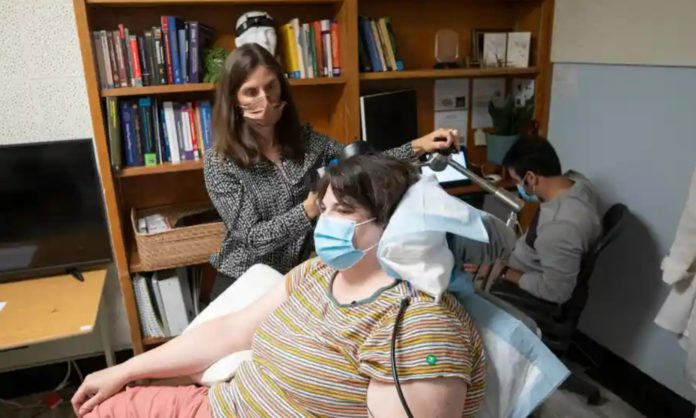The new method is based on a “smarter” neural implant that on the one hand “reads” in real-time the patient’s brain activity and on the other hand causes electrical stimulation when it detects situations of severe depression.
A team of scientists at the University of California, San Francisco (UCSF) have introduced a new type of treatment for severe depression, using a surgical implant device – something similar to a pacemaker – that automatically triggers electrical stimulation of the brain and thus has been shown to effectively fight mental illness.
The researchers, led by Professor Katherine Scangos from the University of California, San Francisco (UCSF), who published their research in the medical journal “Nature Medicine”, spoke of successful milestones in the longstanding effort to implement advances in neuroscience in the treatment of psychiatric disorders. They believe that this neurotechnology can be used in the future as an individualized treatment for various neuropsychiatric disorders.
The trial of this treatment so far has yielded vague findings, mainly because there is a great deal of variation in the way patients react to DBS during clinical trials. Electrical stimulation treatments to date send steady and continuous pulses, which seems to be inconsistent with the variety of symptoms, emotions, reactions and areas of the brain involved in people with depression.
The new method, which was tested on a 36-year-old woman with severe persistent depression from her childhood, is based on a “smarter” neural implant that “reads” the patient’s brain activity in real-time, in a specific brain circuit related to its specific symptoms and on the other hand it causes electrical stimulation (with doses of electricity of only 1 mA for six seconds) only at times when it detects states of severe depression. The electrical impulses lead to changes in the activity of neurons and thus mental condition. The treatment proved to be capable of rapid and steady improvement of this patient.
A key innovation for researchers is the discovery of a neuronal biomarker – a specific pattern of brain activity – that “testifies” to the onset of symptoms. The implant responds and demands only when it recognizes this pattern in a specific area of the brain.
This personalized approach relieved the patient’s symptoms almost immediately, according to psychiatry professor Andrew D. Krystal.
According to the researchers, “for patients with long-term depression resistant to other treatments, the new method may bring about a transformation.”
“Never before in psychiatry have we been able to do this kind of personalized treatment, relieving the symptoms of depression. “The idea that we can treat the symptoms as soon as they occur is a whole new way of dealing with the most difficult cases of depression,” Scangos said.
The patient, named Sarah, had tried many treatments for years without success and was desperate. As she stated about the new treatment, “in the first months the relief of depression was so sharp that I was not sure it would last. But it has lasted (for over 15 months)“.
However, as the new technique has been tested in a single patient, further research will be needed to determine whether it is available to a wider population. If this is confirmed, then it can be applied more generally as advanced personalized therapy in a variety of neuropsychiatric disorders.
“We need to see how these brain circuits (related to depression) vary between patients and repeat our treatment many times. We also need to look at whether a person’s biomarker or involved brain circuit changes over time as treatment continues,” said Scangos, who is already preparing trials with more patients. If all goes well, will at some point request approval for treatment from the US Food and Drug Administration (FDA).
You were reading: Brain implant cures severe depression – study
Image Credit: Maurice Ramirez
